When deciding to make compost, you should be aware that getting a decent one takes time. You can’t produce it overnight. How long the process will really take depends on many factors. Some experts believe that anything from a few months to even three years is acceptable period.
Basically, if you are engaged in the process, you will need just a few months to get the compost you want. On the other hand, if you put all ingredients into the compost bin and forget about it, you can count on obtaining the usable compost only after a couple of years. Let’s study in detail how it works.
Factors Influencing the Rate of Composting
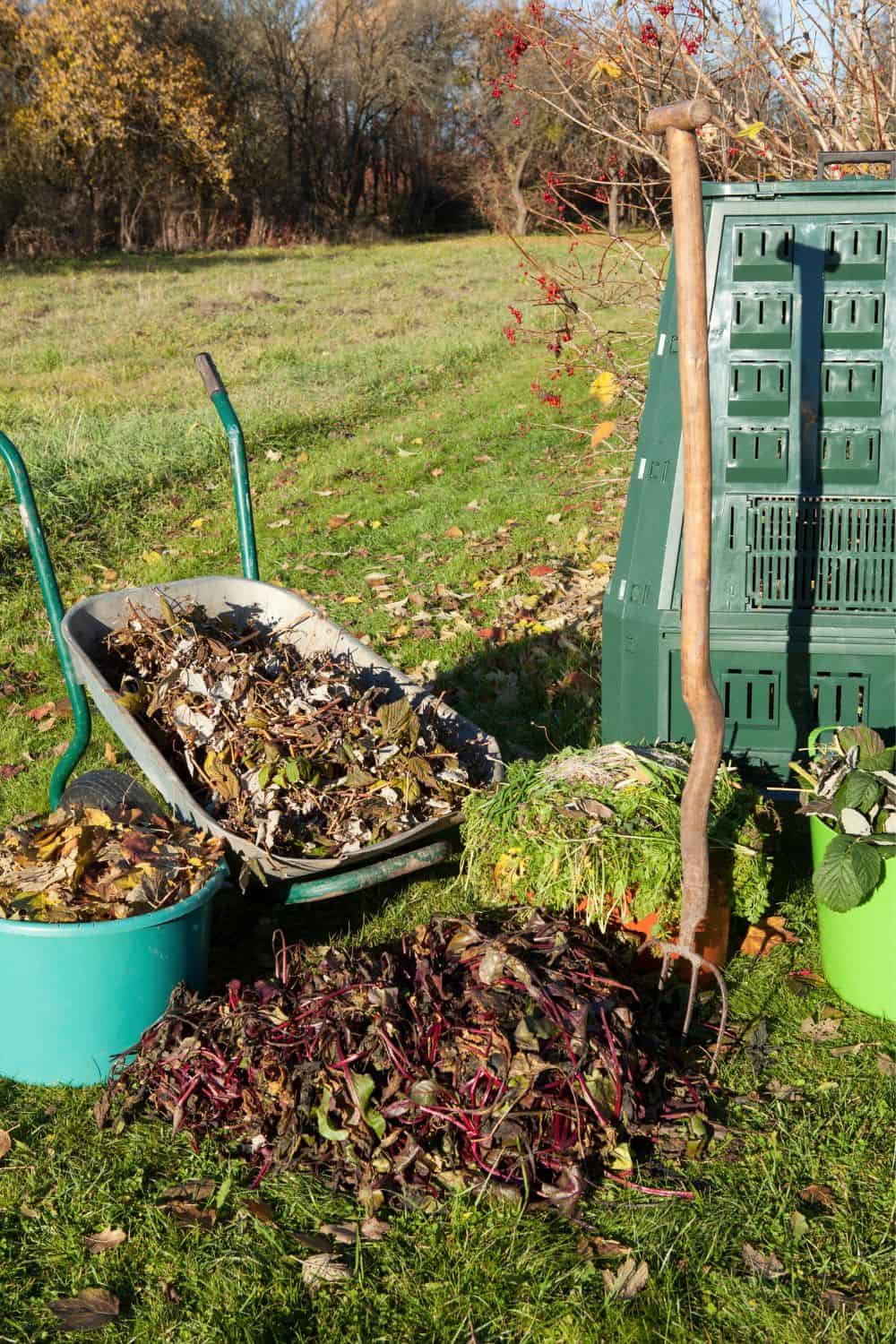
How long the whole process of composting takes, will primarily depend on:
- The level of ripening of compost you need
- The variety of materials you put into the bin
- The level of your engagement in the process (how many times you turn the pile)
- The surface area of used material
- The size of your compost pile
- The level of moisture and aeration of your bin
- The type of your compost bin
- The place of your bin
Key factors:
Season
In practice, the process of composting will be faster if you use the hotter bin. For example, if you use the covered, plastic container full of material which will rot quickly in a sunny place, without adding fresh content, and turn it a couple of times during the process, you will get usable compost at the end of the season.
In a case when you add material into your compost bin constantly, you shouldn’t mix it to avoid combining partially decomposed stuff with fresh ingredients. If you use a well-balanced mixture, your compost from the bottom will be ready for use in a few months.
Maybe you should be patient, start the process in summer, and wait for half a year to harvest excellent compost in fall. In a case to start the process in fall and fill your bin during winter, be prepared that you probably can’t get the decent compost in spring because cold weather makes the composting slower.
Bin
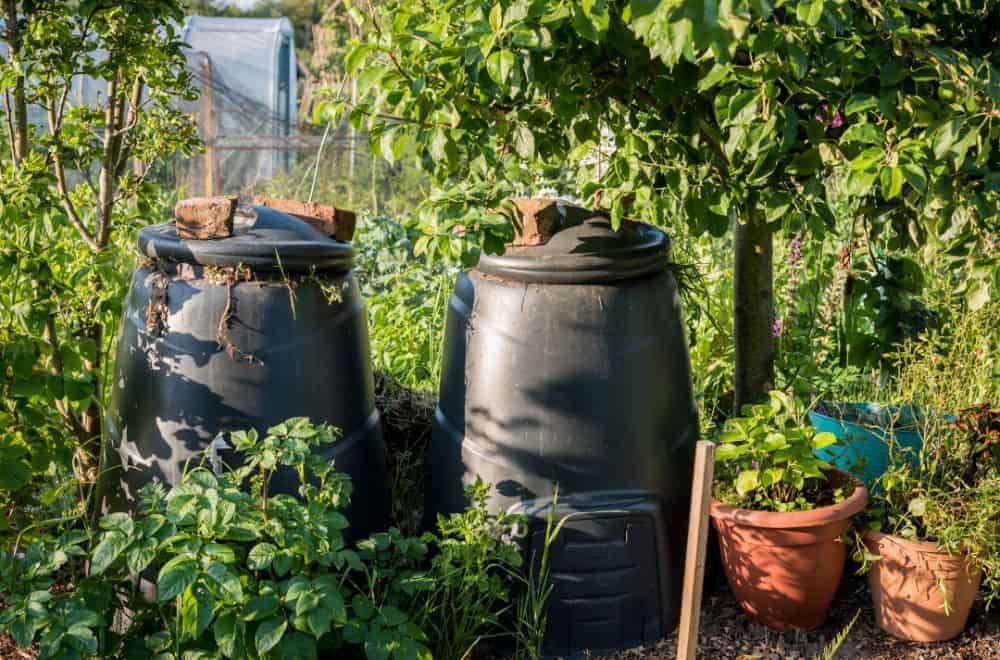
The size of a compost bin you use should depend on the available space and your needs, but you should be aware that you will always get more heat in larger containers. Plus, they will retain the produced heat better.
In other words, the process of composting will be faster if you use the bigger container. If you have enough space just for a smaller bin, you should try to put it in a sunny place to get usable compost more quickly.
As for the material from which your compost bin is made, I can tell you that wooden ones can’t retain heat as well as plastic bins. Moreover, you can expect the edges of the material to dry especially during sunny summer days. Such materials won’t rot properly as bacteria work well only when stuff is moist.
Material
You should know that not every material will break apart at the same speed. The best waste for fast composting will be:
- Annual weeds – leaves and roots of grass from your garden
- Fruit peel – The lemon and orange peel will rot quickly
- Vegetable plants and trimmings – Outside leaves, carrot tops, or pea pods are excellent material for composting. However, try to avoid cabbage or peach and avocado stones, for example
- Lawn mowing – Avoid adding more than 20cm of these materials at a time, and you will get good compost. The only condition is that you don’t treat your lawn with herbicides
Mixing the content
How often you turn the stuff you use for composting will directly influence the aeration of the center of the pile. This part is essential for the process because the bacteria that do the composting need air. Always keep in mind that the process will take place faster if you aerate your material more often.
The bad news is that mixing the pile can be quite hard work and it takes a lot of time. Also, mixing new ingredients with rotting ones will affect the process, and you will need more time to get decent compost. That means you will probably need another bin for fresh stuff.
In my opinion, buying an adequate composter can be a wise solution if your household has a lot of waste. That way, you will make the process faster and more comfortable.
How Fast the Various Wastes Will Rot Down
One of the essential things you always need to keep in mind is that you should select precisely certain ingredients depending on how fast you want to get usable compost. Also, the best option is to mix green and brown components. That way, you will get the richest possible finished product.
Waste which rots down within six months:
- Annual Weeds
- Fresh leaves
- Flower heads
- Fruit Peel
- Vegetable leaves
- Vegetable trimmings
- Bread and cereals
- Coffee grounds
- Tea leaves
- Tea bags
- Old wine
- Old herbs and spices
- Thin stems
- Grass clippings
- Dry pets food
- Dust (from a vacuum cleaner)
You can count that you will need up to two years to get usable compost if you use:
- Stems of herbaceous plants
- Autumn leaves
- Soft, green, hedge you get after pruning and clipping
- Nettle
- Cardboard and non-glossy paper
- Paper toweling
- Egg cartons
- Toilet rolls
- Old clothes, linen, and towels made of silk, cotton, and wool
Some waste will need up to three years to rot down:
- Wood shavings and chips
- Pine needles and cones
- Ivy stems
- Conifer needles and evergreen leaves
- Woody twigs
- Eggshells
- Grass clippings without other ingredients
- Avocados, plums, and peaches Fire Pits
- Wine Corks
- Toothpicks
No matter what material you use, one rule is always valid. The more you chop ingredients, the faster you will get compost.
Ingredients You Should Avoid When Making Compost
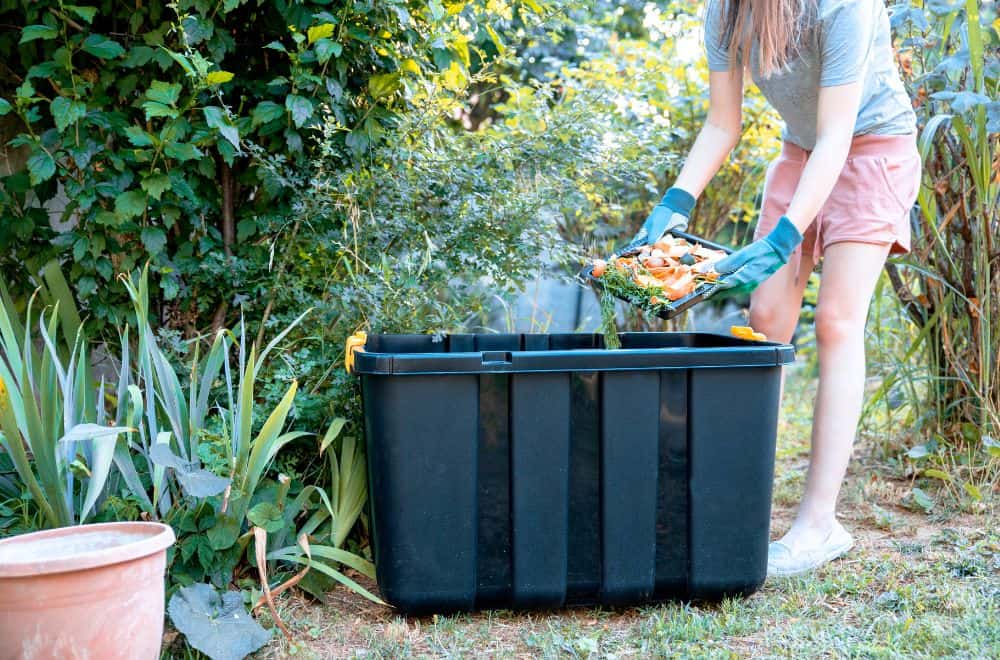
Regardless of whether you need compost as soon as possible or you can wait a year or two to let it adequately mature, there are ingredients that you shouldn’t add to the compost pile at all:
Meat, fish, dairy, fats, and bones – Avoid adding animal products since they will probably ‘overheat’ the compost pile.
Organic material that is difficult to break down – You don’t need blackberry and raspberry brambles, thick branches, and long twigs in your compost since they will prolong its decomposition too much.
Coal ash – Even though you can mix cigarette ash and wood ash with other compost material, you should avoid coal ashes. Since it contains too much iron and sulfur, it is not safe for your plants.
Colored paper – Since colored inks contain a high level of toxic materials, including heavy metals, you shouldn’t add any colored paper such as newsprint to the compost pile.
Pet droppings – You should know that pet droppings, especially cat and dog ones usually contain disease organisms which can make your compost toxic. It is more secure to avoid adding them to the compost pile.
Diseased plants – If you add such plants to your pile, you will take the risk of spreading disease throughout your garden once you use compost.
Inorganic materials – All those materials (metals, glass, aluminum, or plastics) can’t break down at all. It is absolutely useless adding them to the compost pile. Also, avoid pressure-treated lumber because of potentially toxic chemicals it is treated with.
Synthetic chemicals – All herbicides and pesticides are harmful, and you shouldn’t mix them with your compost material.
Impact of the Used Methods on the Speed of Composting
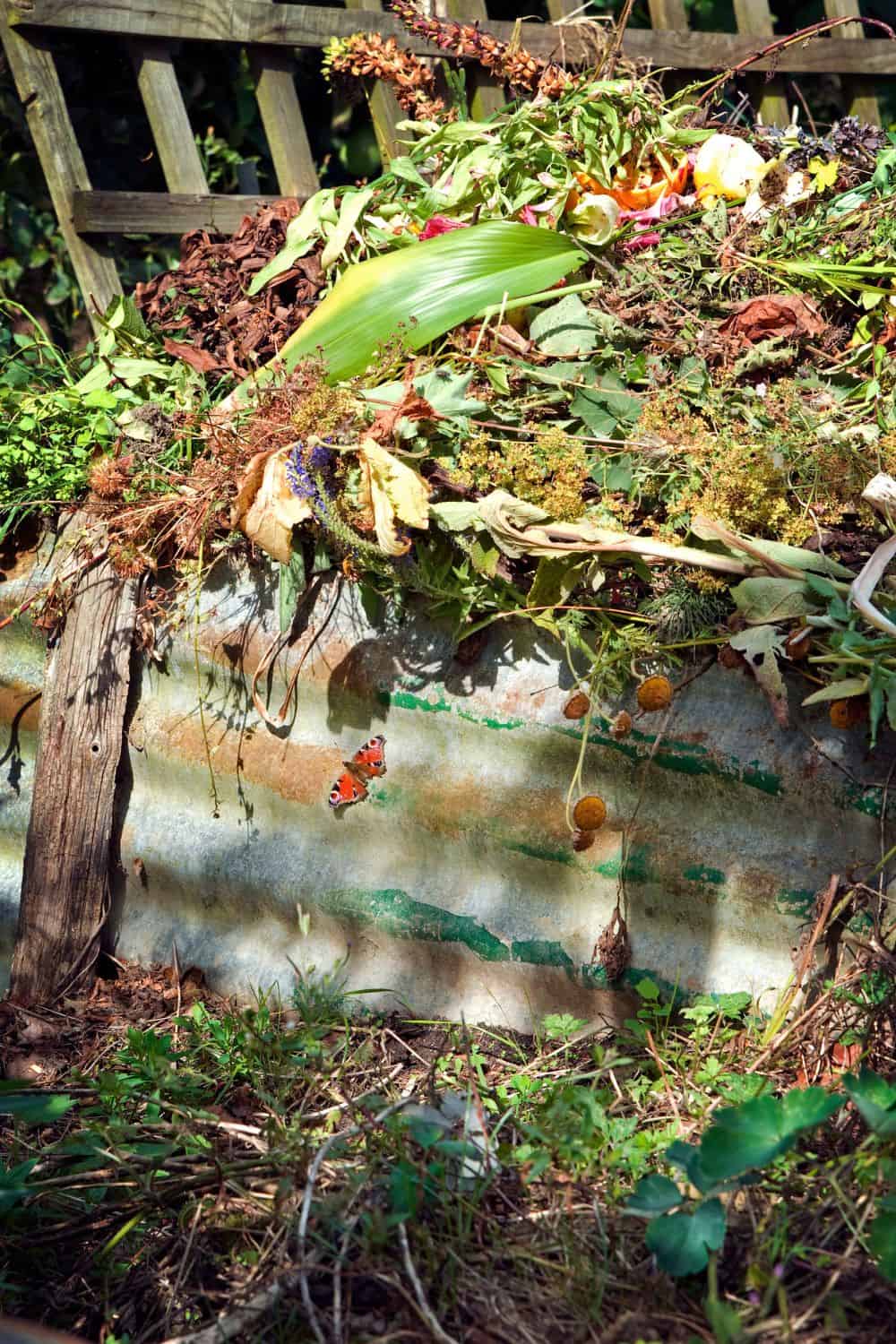
Once you decide to start composting your waste, you should know that the method of composting you use will affect how long you need to wait for the first usable material. Let’s see.
1. Hot turn – Twenty-day process
This method is the best option if you want to get finished compost fast. However, be prepared that it is a quite demanding way compared to other commonly used methods. Firstly, the compost pile needs to be 3′x3′ (0.9×0.9 m) at least.
Also, you need to take care of the proper proportions (30:1) of brown stuff to green stuff, which determines the proportion of carbon to nitrogen. Moreover, you should chop all ingredients into pieces of one inch (2.5 cm).
Rotate the pile daily for the first week. Over the next two weeks, try to rotate it every other day. This way, you will get the finished compost in approximately three weeks.
2. Slow no turn – Three to twelve-month process
This is probably the easiest way to get excellent compost for a decent time. Set up a pile in the yard, and add all the waste from your household over time. How long the process will last directly depends on the used material as well as moisture, and temperature of the pile.
To get good compost in three to four months, you need a good ratio (from 20:1 to 100:1) of carbon to nitrogen. Otherwise, the process of decomposing can last up to a year.
3. Worm bin – One to three-month process
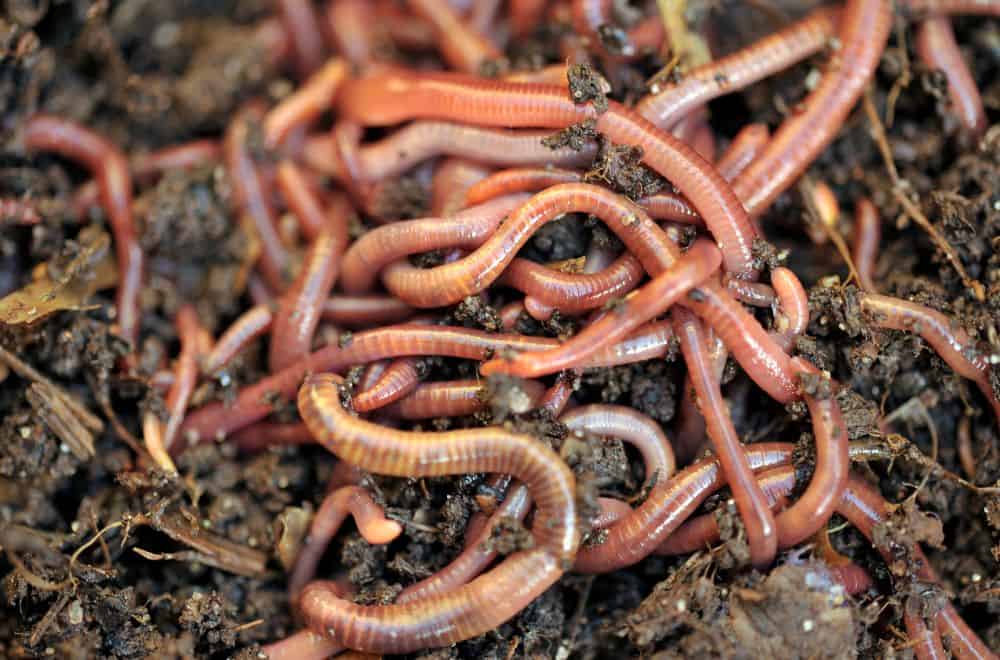
If you choose this type of composting, you will need to establish the number of worms properly. The more of them you have, the process of getting compost will be faster.
In the beginning, while the worms start establishing, you will get usable compost after three months. Later, when the number of worms reaches the maximum (usually after nine months), you will get compost after only a month.
4. Black soldier fly – Three-week process
Nowadays, there is a new way of getting compost by using larvae of black soldier fly. They are a better option than worms because they work quickly and can survive various temperatures. Also, when you use them, you can add even dairy products and meat into the compost pile.
The great thing is that the larvae become fat after eating your waste which makes them excellent animal feed for your chickens. Depending on the amount of waste and the number of used larvae, you can expect excellent compost after approximately three weeks.
External Factors Which Affect Speed of Compost Decomposition
Be prepared that many external factors will affect the process of your compost decomposition. Some of the most important are:
Temperature – Maybe you should use a thermometer to check a temperature into your compost pile from time to time. The fact is that bacteria work better when the inside of your compost pile is warmer than the ambient temperature.
In average, you can expect:
- The temperature of the pile should be 100-120 F (37.8-48.9 C) when it is 80 F (26.7 C) outside during summer
- The temperature of the pile should be 40 F (4.5 C) when it is 30 F (-1 C) outside during winter
When the temperature inside the pile starts decreasing, it is the time to turn the material. You will know that compost is close to being finished when your pile stops heating up after turning.
A density of the material – You should know that the density of the materials you use to make compost will directly affect the speed of the process of decomposing. That means if you add more dense wood fibers, you will wait to get usable compost longer.
Size and shape of the material – You should cut or chop the used material depending on the time you want your compost finished. The smaller pieces you add to the pile, your compost will be ready for use earlier.
The intensity of adding the material – Constant adding fresh stuff to your composter will slow down the composting process. I recommend you to use at least two bins. One for compost which is ready to use, and another one for fresh material you add daily. That way, you will make the process faster and more efficient.
Technology – The method and technology of composting highly affect the decomposition process. For example, hot compost tumblers will speed up this process by encouraging the growth of bacteria which create heat.
Conclusion
Make composting a part of your everyday life. That way you will protect the environment by reducing the amount of waste and enrich your garden with necessary nutrients at the same time.
How fast you will get the excellent compost for your garden depends on many factors, including the type of materials you add to the pile and its size. Also, your hard work will affect the speed of the process. Regular turning the pile will make decomposing your compost faster and more efficient.
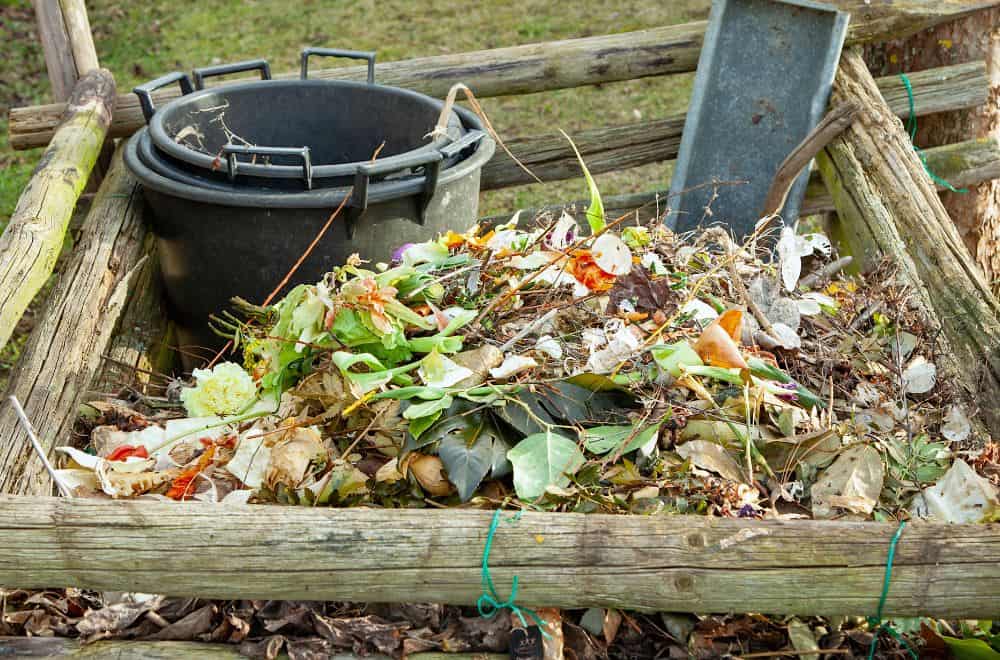
Leave a comment